The GW Institute for Korean Studies & the East Asia National Resource Center Present:
Korea Policy Forum Webinar
“South Korea’s National Assembly Elections:
Prospects of New Political Geography and Foreign Policy”
Speakers
Stephen Costello, Non-Resident Scholar, GW Institute for Korean Studies
Celeste Arrington, Korea Foundation Assistant Professor of Political Science and International Affairs, George Washington University
Heung-Kyu Kim, Director of China Policy Institute, Ajou University
Moderator
Yonho Kim, Associate Director, GW Institute for Korean Studies
Date & Time
Monday, April 20, 2020 9:15 a.m. – 10:30 am.
Event Description
On April 15, South Korea will hold the general elections amid the ongoing coronavirus pandemic. Not only the unprecedented fight against COVID-19 but also the new proportional representation system emerged as critical variables for the election results. What are the main political parties’ strategies and challenges leading up to the elections and how did they lead to the election outcome? How would the political landscape, including the power relations within the main political parties, be shifting in the coming months? What would be the potential impact of the election results on Seoul’s repositioning its foreign and security policy? Please join the GW Institute for Korean Studies for an online discussion with experts from both the U.S. and South Korea on the prospects of a new domestic political geography in South Korea and its potential impact on U.S.-ROK relations and Seoul’s North Korea policy.
Speakers
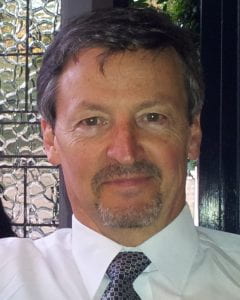 Stephen Costello has been immersed in South Korean politics and foreign policy since 1990. He is the Director of the policy NGO AsiaEast.Org and columnist with The Korea Times in Seoul. He holds a bachelor’s degree in Public Policy Analysis from Syracuse University. Mr. Costello was formerly director of the Korea Program at the Atlantic Council of the US and director of the Kim Dae Jung Peace Foundation/USA. He was a political consultant and policy advisor to overseas political parties and mayors, and Washington manager for overseas NGOs. He has consulted for small technology businesses in Korea and the US. He has advised ministers and staff at the Foreign and Unification ministries in Seoul and the State Department in Washington. Beyond South Korea, Costello’s focus includes the Korean Peninsula, Northeast Asia, and the US interests in the region.
Stephen Costello has been immersed in South Korean politics and foreign policy since 1990. He is the Director of the policy NGO AsiaEast.Org and columnist with The Korea Times in Seoul. He holds a bachelor’s degree in Public Policy Analysis from Syracuse University. Mr. Costello was formerly director of the Korea Program at the Atlantic Council of the US and director of the Kim Dae Jung Peace Foundation/USA. He was a political consultant and policy advisor to overseas political parties and mayors, and Washington manager for overseas NGOs. He has consulted for small technology businesses in Korea and the US. He has advised ministers and staff at the Foreign and Unification ministries in Seoul and the State Department in Washington. Beyond South Korea, Costello’s focus includes the Korean Peninsula, Northeast Asia, and the US interests in the region.
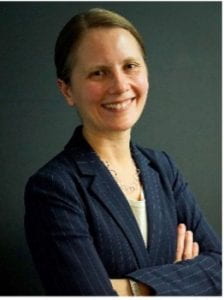 Celeste Arrington is Korea Foundation Assistant Professor of Political Science and International Affairs at GW. She specializes in comparative politics, with a regional focus on the Koreas and Japan. Her research and teaching focus on law and social movements, the media, lawyers, policy processes, historical justice, North Korean human rights, and qualitative methods. She is also interested in the international relations and security of Northeast Asia and transnational activism. She is the author of Accidental Activists: Victims and Government Accountability in South Korea and Japan (2016) and has published in Comparative Political Studies, Law & Society Review, Journal of East Asian Studies, Pacific Affairs, Asian Survey, and the Washington Post, among others. She received a Ph.D. from the University of California, Berkeley, an MPhil from the University of Cambridge, and an A.B. from Princeton University. She is currently writing a book that analyzes the role of lawyers and legal activism in Japanese and Korean policies related to persons with disabilities and tobacco control.
Celeste Arrington is Korea Foundation Assistant Professor of Political Science and International Affairs at GW. She specializes in comparative politics, with a regional focus on the Koreas and Japan. Her research and teaching focus on law and social movements, the media, lawyers, policy processes, historical justice, North Korean human rights, and qualitative methods. She is also interested in the international relations and security of Northeast Asia and transnational activism. She is the author of Accidental Activists: Victims and Government Accountability in South Korea and Japan (2016) and has published in Comparative Political Studies, Law & Society Review, Journal of East Asian Studies, Pacific Affairs, Asian Survey, and the Washington Post, among others. She received a Ph.D. from the University of California, Berkeley, an MPhil from the University of Cambridge, and an A.B. from Princeton University. She is currently writing a book that analyzes the role of lawyers and legal activism in Japanese and Korean policies related to persons with disabilities and tobacco control.
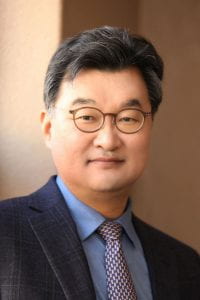 Heung-Kyu Kim is the founder and Director of China Policy Institute and professor in the department of political science at Ajou University, South Korea. He also served as a professor at the Institute of Foreign Affairs and National Security, South Korea’s Ministry of Foreign Affairs. His current assignments include Policy Advisory Board Member for the Ministry of National Defense and the ROK Army and a member of the Foreign Ministry’s Reform Commission. He also served as Director of Foreign Affairs Subcommittee on the Presidential Commission on Policy Planning, Team Leader of Security and Defense in the Presidential Task Force of Future Vision 2045, a board member of the National Security Council and a board member of National Defense Reform Commission. Dr. Kim’s publications include China and the U.S.-ROK Alliance: Promoting a Trilateral Dialogue (CFR, 2017), Enemy, Homager or Equal Partner?: Evolving Korea-China Relations (2012), From a Buffer Zone to a Strategic Burden: Evolving Sino-North Korea Relations during Hu Jintao Era (2010). His book China’s Central-Local Relations and Decision-Making received an award for Excellency of the Year by the Ministry of Culture in 2008. He also received the NEAR Foundation Academic prize of the year in the area of foreign policy and security in 2014. Kim received his BA and MA in international relations from Seoul National University, South Korea, and Ph.D. in Political Science from the University of Michigan.
Heung-Kyu Kim is the founder and Director of China Policy Institute and professor in the department of political science at Ajou University, South Korea. He also served as a professor at the Institute of Foreign Affairs and National Security, South Korea’s Ministry of Foreign Affairs. His current assignments include Policy Advisory Board Member for the Ministry of National Defense and the ROK Army and a member of the Foreign Ministry’s Reform Commission. He also served as Director of Foreign Affairs Subcommittee on the Presidential Commission on Policy Planning, Team Leader of Security and Defense in the Presidential Task Force of Future Vision 2045, a board member of the National Security Council and a board member of National Defense Reform Commission. Dr. Kim’s publications include China and the U.S.-ROK Alliance: Promoting a Trilateral Dialogue (CFR, 2017), Enemy, Homager or Equal Partner?: Evolving Korea-China Relations (2012), From a Buffer Zone to a Strategic Burden: Evolving Sino-North Korea Relations during Hu Jintao Era (2010). His book China’s Central-Local Relations and Decision-Making received an award for Excellency of the Year by the Ministry of Culture in 2008. He also received the NEAR Foundation Academic prize of the year in the area of foreign policy and security in 2014. Kim received his BA and MA in international relations from Seoul National University, South Korea, and Ph.D. in Political Science from the University of Michigan.
Moderator
 Yonho Kim is Associate Research Professor of Practice and Associate Director of GW Institute for Korean Studies. He specializes in North Korea’s mobile telecommunications and U.S. policy towards North Korea. Kim is the author of North Korea’s Mobile Telecommunications and Private Transportation Services in the Kim Jong-un Era (2019) and Cell Phones in North Korea: Has North Korea Entered the Telecommunications Revolution? (2014). His research findings were covered by various media outlets, including Wall Street Journal, The Atlantic, Yonhap News, and Libération. Prior to joining GWIKS, he extensively interacted with the Washington policy circle on the Korean peninsula as Senior Researcher of the U.S.-Korea Institute at Johns Hopkins University School of Advanced International Studies, Senior Reporter for Voice of America’s Korean Service, and Assistant Director of the Atlantic Council’s Program on Korea in Transition. He holds a B.A. and M.A. in International Relations from Seoul National University, and an M.A. in International Relations and International Economics from Johns Hopkins University School of Advanced International Studies.
Yonho Kim is Associate Research Professor of Practice and Associate Director of GW Institute for Korean Studies. He specializes in North Korea’s mobile telecommunications and U.S. policy towards North Korea. Kim is the author of North Korea’s Mobile Telecommunications and Private Transportation Services in the Kim Jong-un Era (2019) and Cell Phones in North Korea: Has North Korea Entered the Telecommunications Revolution? (2014). His research findings were covered by various media outlets, including Wall Street Journal, The Atlantic, Yonhap News, and Libération. Prior to joining GWIKS, he extensively interacted with the Washington policy circle on the Korean peninsula as Senior Researcher of the U.S.-Korea Institute at Johns Hopkins University School of Advanced International Studies, Senior Reporter for Voice of America’s Korean Service, and Assistant Director of the Atlantic Council’s Program on Korea in Transition. He holds a B.A. and M.A. in International Relations from Seoul National University, and an M.A. in International Relations and International Economics from Johns Hopkins University School of Advanced International Studies.
Registered guests will receive a separate WebEx invitation email with details
for joining the event a day before the event.
This event is on the record and open to the public.
The Korea Policy Forum is made possible by a generous grant provided by the KDI School of Public Policy and Management.

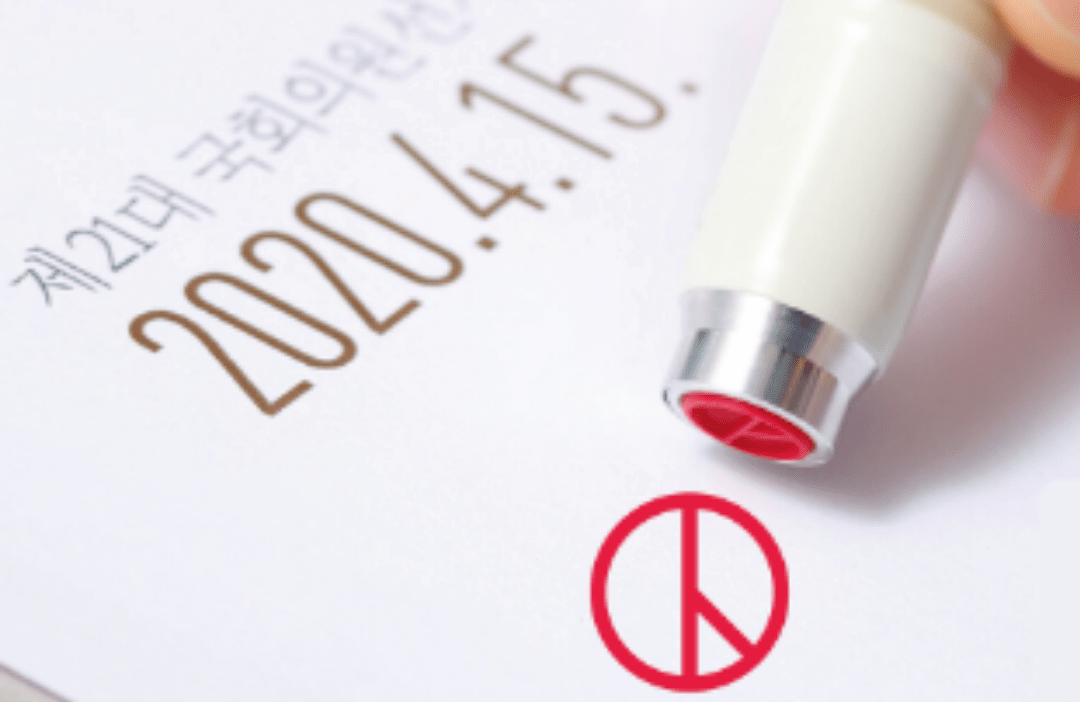


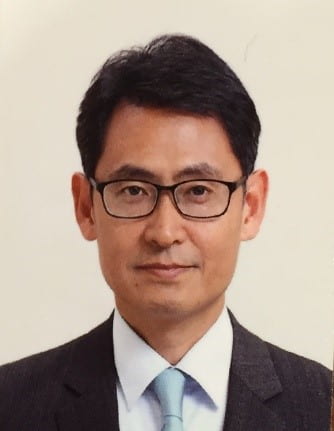 Chang Huh has been serving as the Deputy Minister for International Affairs of the Ministry of Economy and Finance since February 2020. He has worked in various capacities both at home and abroad, including serving as the Director General for the Development Finance Bureau from 2018 to 2020 and as the Senior Director for the International Economic Policy Division from 2012 to 2013. Dr. Huh has also worked at the OECD as the Minister of the Permanent Delegation of the Republic of Korea (2015-2018) and at the Asian Development Bank (ADB) as an advisor to the Executive Director of the Korean Office (2004-2005). He majored in International Economics at Seoul National University and received a Ph.D. in Economics from I.E.P. de Paris in July 2003.
Chang Huh has been serving as the Deputy Minister for International Affairs of the Ministry of Economy and Finance since February 2020. He has worked in various capacities both at home and abroad, including serving as the Director General for the Development Finance Bureau from 2018 to 2020 and as the Senior Director for the International Economic Policy Division from 2012 to 2013. Dr. Huh has also worked at the OECD as the Minister of the Permanent Delegation of the Republic of Korea (2015-2018) and at the Asian Development Bank (ADB) as an advisor to the Executive Director of the Korean Office (2004-2005). He majored in International Economics at Seoul National University and received a Ph.D. in Economics from I.E.P. de Paris in July 2003. Hee-Kwon Jung has been serving as the Director-General for the International Cooperation Bureau of the Ministry of Science and ICT since November 2019. He also served as the President of the Seoul Office of Central Radio Management Service of the Ministry of Science and ICT from 2018 to 2019. From 2014 to 2016, he worked as the Director of the Public-Private Joint Task Force for the Creative Economy on the Presidential Advisory Council for Science and Technology and held positions in the S&T Innovation Division, S&T Strategy Division, and S&T Policy Division of the Ministry of Science, ICT and Future Planning. From 2009 to 2011, he was seconded to the OECD. In 2007, he worked as the Director of the Technology Innovation System Division of the Ministry of Science and Technology. He graduated from Seoul National University, majoring in International Economics, and acquired an M.A in Public Administration from the University of Missouri.
Hee-Kwon Jung has been serving as the Director-General for the International Cooperation Bureau of the Ministry of Science and ICT since November 2019. He also served as the President of the Seoul Office of Central Radio Management Service of the Ministry of Science and ICT from 2018 to 2019. From 2014 to 2016, he worked as the Director of the Public-Private Joint Task Force for the Creative Economy on the Presidential Advisory Council for Science and Technology and held positions in the S&T Innovation Division, S&T Strategy Division, and S&T Policy Division of the Ministry of Science, ICT and Future Planning. From 2009 to 2011, he was seconded to the OECD. In 2007, he worked as the Director of the Technology Innovation System Division of the Ministry of Science and Technology. He graduated from Seoul National University, majoring in International Economics, and acquired an M.A in Public Administration from the University of Missouri.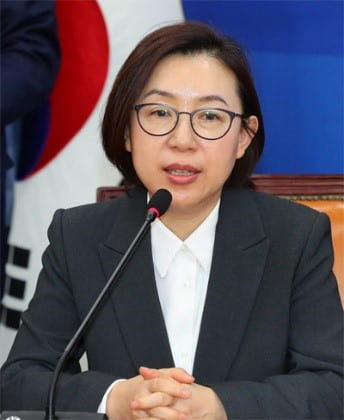 Moran Ki is a professor in the Department of Cancer Control and Population Health at the National Cancer Center Graduate School of Cancer Science and Policy (NCC-GCSP). Her expertise lies in infectious disease epidemiology and global health. She worked as a professor in the Department of Preventive Medicine at Eulji University from 1998 to 2013 and served as the Dean of Eulji University’s Graduate School of Public Health from 2005 to 2008 and again from 2011 to 2013. She received her Ph.D. from Hanyang University’s College of Medicine. She also received an M.P.H. in Public Health from Seoul National University and an M.D. in medicine from Hanyang University.
Moran Ki is a professor in the Department of Cancer Control and Population Health at the National Cancer Center Graduate School of Cancer Science and Policy (NCC-GCSP). Her expertise lies in infectious disease epidemiology and global health. She worked as a professor in the Department of Preventive Medicine at Eulji University from 1998 to 2013 and served as the Dean of Eulji University’s Graduate School of Public Health from 2005 to 2008 and again from 2011 to 2013. She received her Ph.D. from Hanyang University’s College of Medicine. She also received an M.P.H. in Public Health from Seoul National University and an M.D. in medicine from Hanyang University.


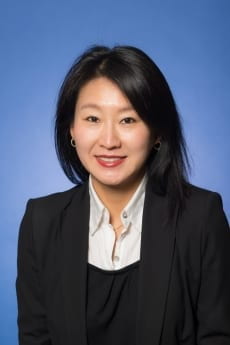

 David E. Sanger is a national security correspondent and a senior writer. In a 36-year reporting career for The New York Times, he has been on three teams that have won Pulitzer Prizes, most recently in 2017 for international reporting. His newest book, The Perfect Weapon: War, Sabotage and Fear in the Cyber Age, examines the emergence of cyber-conflict as the primary way large and small states are competing and undercutting each other, changing the nature of global power.
David E. Sanger is a national security correspondent and a senior writer. In a 36-year reporting career for The New York Times, he has been on three teams that have won Pulitzer Prizes, most recently in 2017 for international reporting. His newest book, The Perfect Weapon: War, Sabotage and Fear in the Cyber Age, examines the emergence of cyber-conflict as the primary way large and small states are competing and undercutting each other, changing the nature of global power. 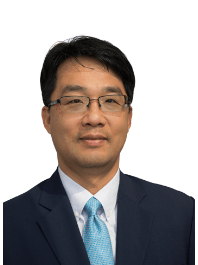





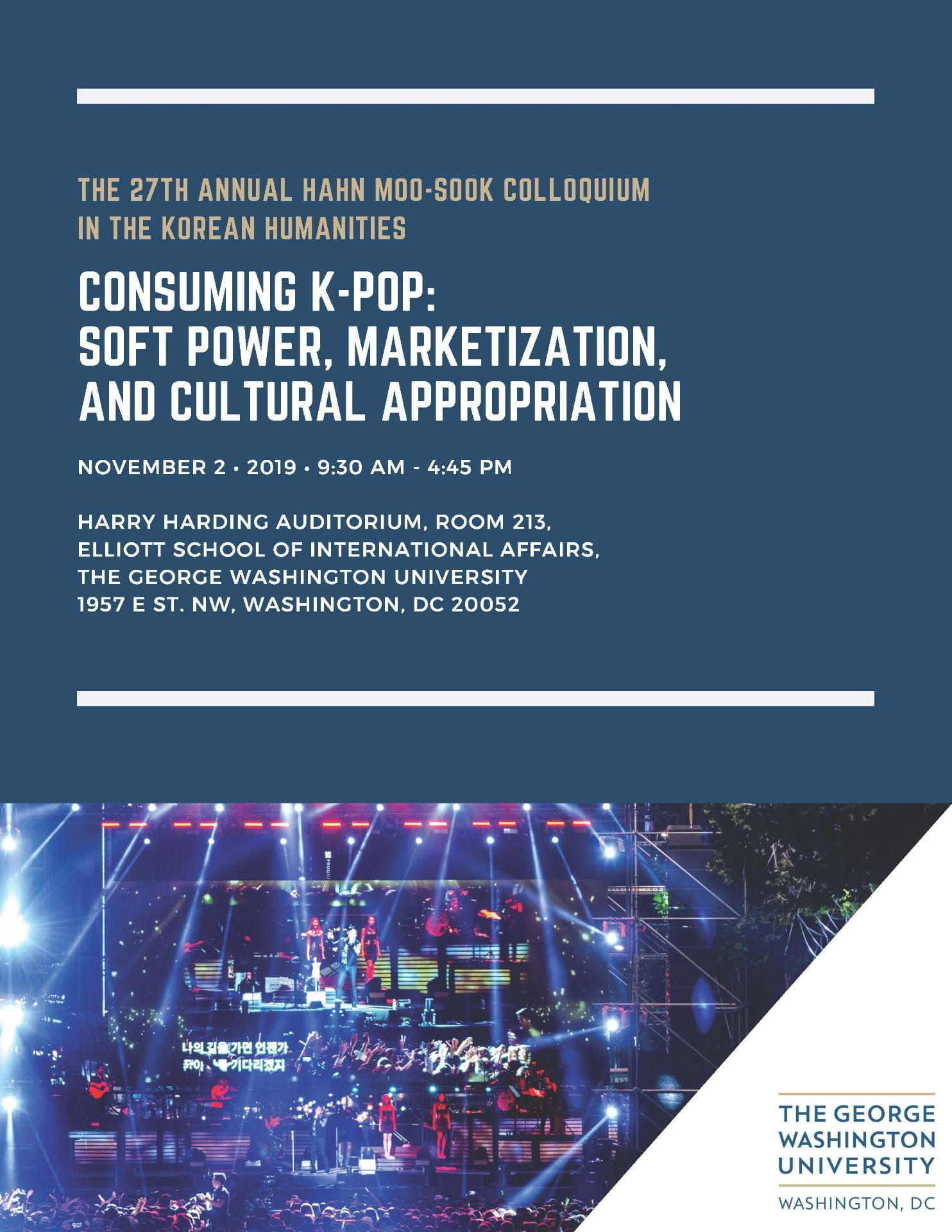
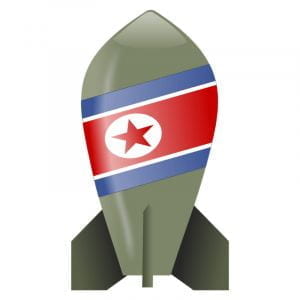


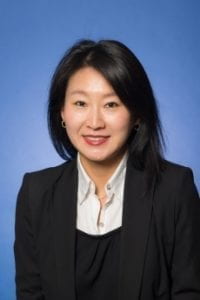

 Heung-Kyu Kim is the founder and Director of China Policy Institute and professor in the department of political science at Ajou University, South Korea. He also served as a professor at the Institute of Foreign Affairs and National Security, South Korea’s Ministry of Foreign Affairs. His current assignments include Director of Foreign Affairs Subcommittee on the Presidential Commission on Policy-Planning, Team Leader of Security and Defense in the Presidential Task Force of Future Vision 2045, a board member of the National Security Council and a board member of National Defense Reform Commission, Ministry of National Defense. Kim has written more than 300 articles, books, and policy papers regarding Chinese politics and foreign policy, and security issues in Northeast Asia. They include China and the U.S.-ROK Alliance: Promoting a Trilateral Dialogue (CFR, 2017), Enemy, Homager or Equal Partner?: Evolving Korea-China Relations (2012), From a Buffer Zone to a Strategic Burden: Evolving Sino-North Korea Relations during Hu Jintao Era (2010). His book China’s Central-Local Relations and Decision-Making received an award for Excellency of the Year by the Ministry of Culture in 2008. He also received the NEAR Foundation Academic prize of the year in the area of foreign policy and security in 2014. Kim received his BA and MA in international relations from Seoul National University, South Korea, and Ph.D. in Political Science from the University of Michigan.
Heung-Kyu Kim is the founder and Director of China Policy Institute and professor in the department of political science at Ajou University, South Korea. He also served as a professor at the Institute of Foreign Affairs and National Security, South Korea’s Ministry of Foreign Affairs. His current assignments include Director of Foreign Affairs Subcommittee on the Presidential Commission on Policy-Planning, Team Leader of Security and Defense in the Presidential Task Force of Future Vision 2045, a board member of the National Security Council and a board member of National Defense Reform Commission, Ministry of National Defense. Kim has written more than 300 articles, books, and policy papers regarding Chinese politics and foreign policy, and security issues in Northeast Asia. They include China and the U.S.-ROK Alliance: Promoting a Trilateral Dialogue (CFR, 2017), Enemy, Homager or Equal Partner?: Evolving Korea-China Relations (2012), From a Buffer Zone to a Strategic Burden: Evolving Sino-North Korea Relations during Hu Jintao Era (2010). His book China’s Central-Local Relations and Decision-Making received an award for Excellency of the Year by the Ministry of Culture in 2008. He also received the NEAR Foundation Academic prize of the year in the area of foreign policy and security in 2014. Kim received his BA and MA in international relations from Seoul National University, South Korea, and Ph.D. in Political Science from the University of Michigan.
